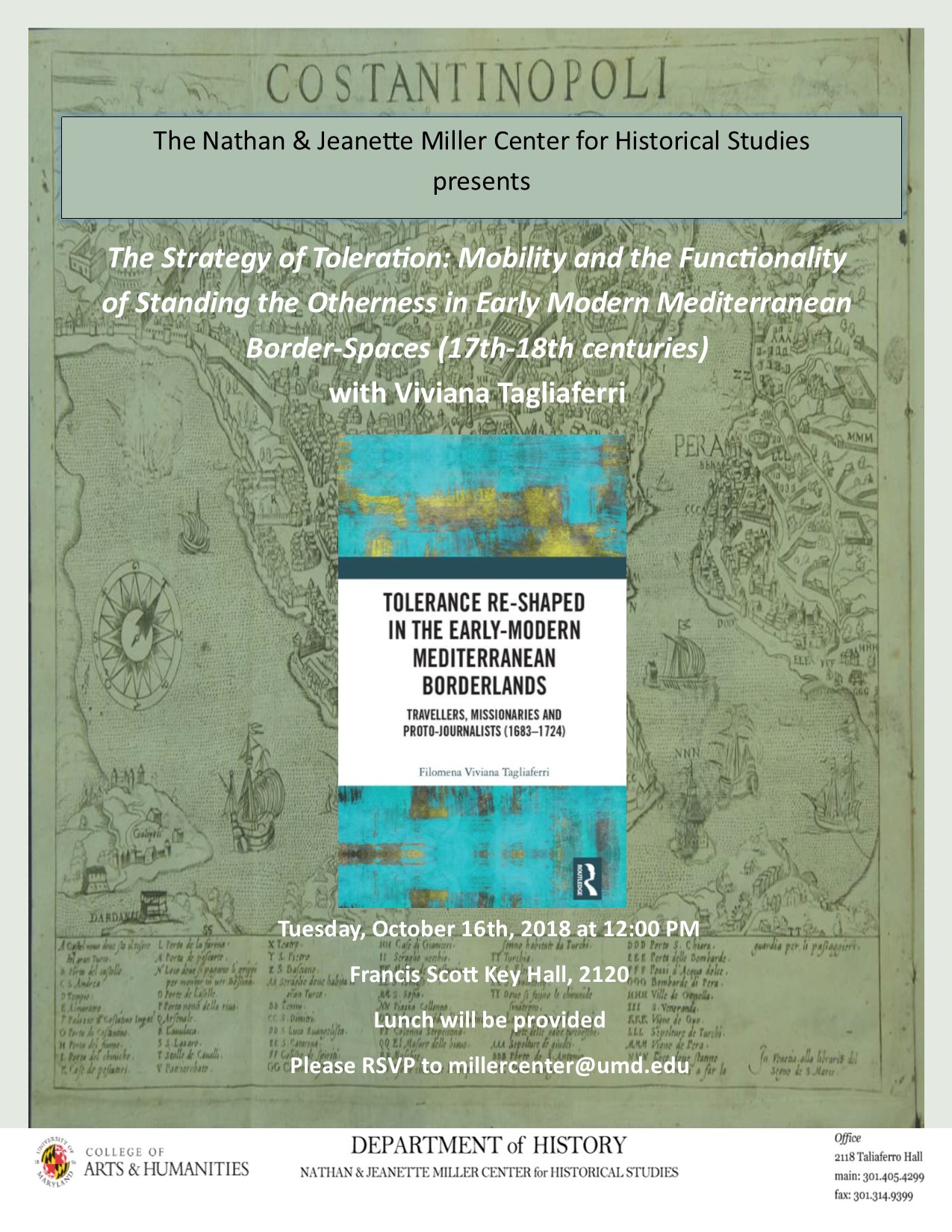The Strategy of Toleration

The Strategy of Toleration
Please join the Miller Center for Historical Studes for a presentation by Dr. Viviana Tagliaferri.
Filomena Viviana Tagliaferri was born in Frosinone, Italy. After the completion of her Ph.D. at the Universita’ degli Studi di Firenze, Dr. Tagliaferri was active first in the United Kingdom as a Visiting Fellow and Research Assistant, and afterward in Greece as a Postdoctoral Researcher. From 2011-12, she was a Visiting Scholar at the School of Oriental and African Studies (SOAS – University of London) in the Department of Turkish Studies and, as of 2012, a Research Assistant at Royal Halloway (University of London). During 2012-2013, she was Research Fellow at King’s College London, and in 2013 Fellow at the Alexander S. Onassis Public Benefit Foundation, starting her affiliation with the Institute for Mediterranean Studies (IMS) on Crete that she had maintained while IKY (2013-14) and IPEP Fellow (2015-16).
From 2017, she is Marie Skłodowska-Curie Global Fellow at the Istituto di Storia per l’Europa Mediterranea del Consiglio Nazionale delle Ricerche (ISEM-CNR), Cagliari, Italy, and the University of Maryland at College Park, Mayland, USA.
Before tolerance as the ability or willingness to tolerate the existence of opinions or behaviour that one dislikes or disagrees with, came the ability to put up with different opinions or behaviours. The book enquires pre-modern toleration in three different situations: the loneliness of Italian travellers in the Ottoman Empire between 1678 and 1701 and, in particular, on the journey to Istanbul, the minority status of Catholic missionaries in Izmir between 1683 and 1724 and, finally, the uncertain attitude of the Maltese news writers towards corsair war through the analysis of the avvisi’s (a kind of proto-gazette) writers. In focusing on three different categories, the book explores various approaches and shifting attitudes of prejudice as to first-hand knowledge towards otherness. The three sections of the books highlight two inverse processes. The first is related to the emergence of toleration as an individual practice in the attitude of Italian travellers in the Ottoman Empire and Catholic missionaries in Izmir, stressing on how the Ottoman framework contributed to re-shaping personal behaviours. The second one is the presence of suprareligious values in the narrative praxis of the Maltese reportists writing for governmental purposes. This sharing of common models in Malta, especially regarding the corso, seems particularly relevant for the detection of a Mediterranean, non-Catholic, common language, precisely because of its presence in a place where anti-Muslim rhetoric was very strong. This overview of strategies that were implying hybridization on one hand and sharing of common models does not support a global ‘Mediterranizing’ interpretation which reduces diversity to a bare minimum. Conversely, the book tries to grasp the fluidity of spaces in which cultures overlapped, stressing their common employment of adapting strategies and how toleration, understanding and sharing of the other’s values were diversely spread in the Mediterranean spaces.

